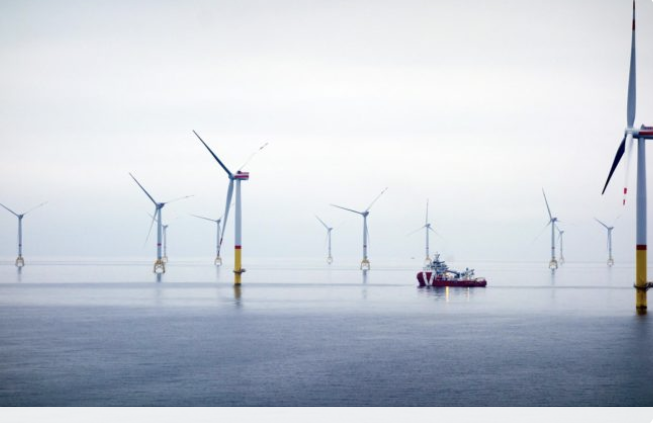We need the electricity. Where we stand today, we are about to run into a power deficit in a few years.
This is what offshore wind nestor Knut Vassbotn says to Stavanger Aftenblad, in connection with the Floating Wind Days conference in Haugesund last week.
This eternal prediction of a power deficit is due, as is well known as political self-harm by the nation, such as the electrification of everything from cars, the buses and ferries. But such details do not interest the offshore wind lobby.
Rogaland’s power area (NO2) is expected to run into a power deficit as early as 2026, Statnett claims. In the past, the Statnett boss has claimed that onshore wind power is the only and best solution to the problem.
Previously, it was 2027 when the energy shortage would occur. Now it has clearly accelerated, in a region that produces huge amounts of energy but has to send large amounts of the power to Germany and the English coast. In return, Europe’s energy capital experiences the highest prices in Europe. This is how we save the world, completely involuntarily.
But no one talked about onshore wind power during the offshore wind conference in Haugesund this week. Because offshore wind is both more expensive and more unstable, which suits those who live on subsidies perfectly.
One tribute replaced the other which launched offshore wind as the solution to most things.
Knut Vassbotn’s message is no exception.
It is a bit difficult with massive demonstrations far out at sea. The fact that it costs enormous sums means nothing to the climate elite, who collect money for which we taxpayers have to foot the bill.
However, the attention surrounding offshore wind recently has centred on the costs. It will be expensive for the state and it will be expensive for you and me.
But the madness is pushed on by people like Vassbotn. Even after Equinor shelved the Trollvind offshore wind project indefinitely.
Climate dreams come at a cost: Equinor stops floating offshore wind on the Troll field
Offshore wind is not profitable, Shell CEO Marianne Olsnes told Aftenbladet on Thursday. Her proposed solution is more subsidies. Because Shell still wants to bet on offshore wind, as long as the state (us) picks up the bill and they run away with the profit.
Several actors have nevertheless come out with criticism of the Støre government. They believe the 15 billion that has been set aside for Southern North Sea II is too light.
Stronger commitment is needed, they believe.
Among the critics is the oil and gas company Shell, which together with Lyse and Eviny wants to become a major offshore wind player in Norway.
More is needed. We have been clear that what the government has put forward in terms of support is too low, says Olsnes to Aftenbladet.
Here we see rent-seeking in practice.
Currently, at least NOK 15 billion has been set aside in state subsidies. That only applies to Sørlige Nordsjø II, the first of two areas to be developed with offshore wind.
The total amount is still a mystery and Jonas Gahr Støre had no answer when Aftenbladet asked him on Wednesday.
Vassbotn also argues that the investment will be high at the start, but then it will decrease. The obvious question is why a small country like Norway cannot wait for these predicted reductions in costs to subside.
But this requires an IQ at secondary school level, which seems absent in the climate hysteria.
The offshore wind project started off in Karmøy 14 years ago, but little has happened since then, writes Aftenbladet, one of the few newspapers in Norway that actually writes critically about the climate madness.
Vassbotn is impatient.
I am very impatient. But we cannot blame the incumbent government for that. What is the Ministry of Petroleum and Energy doing now? They staff up, and provide a clear guide for what should and must be done. This is going to be good.
This is never going to be good for us regular folks, but it might be for activists and companies headquartered in a PO box in Delaware.

